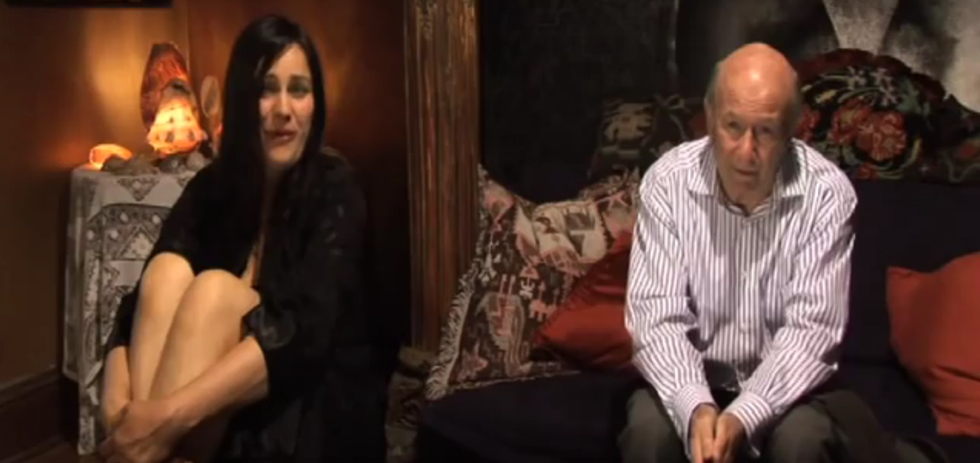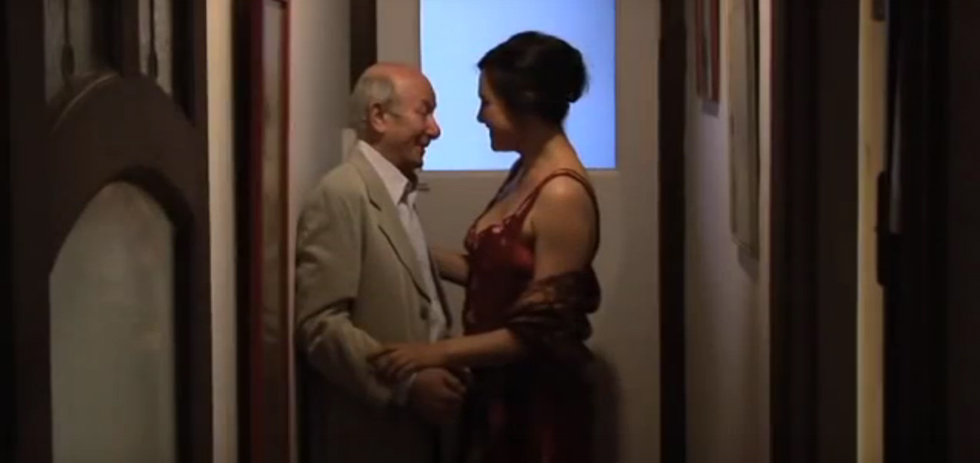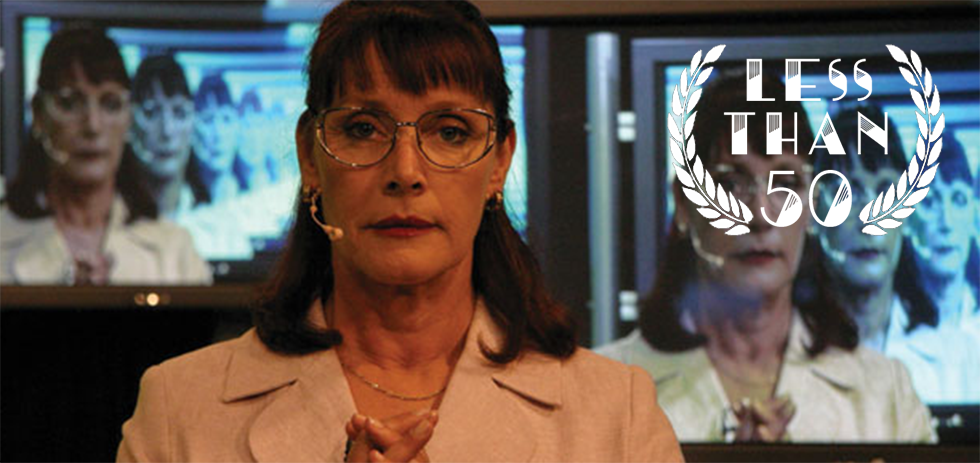In our regular column, Less Than (Five) Zero, we take a look at films that have received less than 50 logged watches on Letterboxd, aiming to discover hidden gems in independent and world cinema. This week Dominic Barlow looks at Paul Cox’s Salvation.
Date Watched: 26rd July, 2015
Letterboxd Views (at the time of viewing): 2
How often do you meet a film-maker before seeing their films? This happened to me when I shook hands with Dutch-Australian auteur Paul Cox in 2011, at an event where a dreamy documentary on his life, On Borrowed Time, was screened, and a book about his hospital treatment for liver cancer, Tales from the Cancer Ward, was sold. I still have my signed copy of the book; touched as I was by the adulation he received on the night, and I don’t think I’ve ever managed to finish it, not for being harrowing but disappointingly insipid. “Too many people who have talents use them to make money, without realising that these gifts belong to our fellow man and not to our bank managers”, he writes, with many more portentous generalities to come. After putting it down before reaching the last page, I let my attentions float elsewhere, and I haven’t seen a film of his until now.
Perhaps shutting the literal and figurative book on Cox was a way of savouring the sincerity demonstrated that night by the man and his admirers, and not letting his pesky creative output get in the way. I’ll cop to being fiercely judgmental in that act, but it wasn’t really a hard task, since not many on Letterboxd or Twitter seem to have seen much of his filmic output. In August, MIFF are decidedly re-stoking the consensus by screening his latest, Force of Destiny, as their Opening Night film; with David Wenham in the starring role and the city of Melbourne itself as his backdrop, it would seem to fit every loose criterion for a punter-pulling gala screening. However, given Cox’s adoration from the likes of Ebert and Cannes, does a point-of-view lurk within his work more pointed than the likes of Sydney’s opener Ruben Guthrie and the blandness I found in the pages of his hospital diary? If we’re to use his last drama, 2008’s Salvation, to decide that, then the gala crowds may be in for a hell of a ride.1 In Salvation, the expected lyricism shines through even on muddy digital cinematography, but with goofy performances and a barbed plot that gouges the kitsch of evangelical religion, it winds up a fascinatingly wonky piece that shoots for Bergman and lands closer to late Woody Allen.

Cox centres us on protagonist Barry (Bruce Myles), a soft-hearted scholar who we first glimpse paying a visit to prostitute Irina (Natasha Novak). As he lays down near-naked for an erotic massage, he starts up and makes a panicked request to turn on the TV for a moment. On it is Gloria (Wendy Hughes), a televangelist pacing the floor of a public access studio and giving charismatic, Christ-inflected voice to platitudes that barely rate above backpage horoscopes. This kind of figure is, by Cox’s telling, the inspiration for the film; a sight he came across while up late editing, telling the viewer how God urged her to get a facelift. She is also Barry’s wife, and by the time he returns home to be hectored with questions and denied his choices in interior decorating, Irina’s role as a stress reliever becomes both crystal clear and the real heart of the story. She has her own problems to deal with, being prone to homesick dreams and dealing with tyrannical emotional abuse from Anton (Alex Menglet), a sexist thug who seems to have nothing better to do but goad her for various favours. Her and Barry’s stories embrace tighter, until their bugbears are too hard to deal with and grand plans are made to escape to a more nourishing life.
Considering his disdain for the commodifying powers that be, it’s a compelling move on Cox’s part to marry Hughes’ capital-reaping religious character to Myles’ dowdy self-insert, as though forcing himself to reach out to this funhouse mirror reflection of faith. At a certain point, though, he throws in the towel by freezing Gloria in her permanent distortion, and Hughes with her through constantly anxious mannerisms. It’s not so strange that her Bible-thumping remains as audacious and conceited at the end as on first appearances, but that the hints on what lurks below the surface are so discombobulating. Though she calls Barry her rock in later scenes, her first has her asking her Smithers-like assistant Tony (Kim Gyngell) to inspect her naked breast for lumps, egging him on in the same tone as a comedy bit I wouldn’t blink twice at finding in, say, Vacation. Later, on separate occasions, she has the two men lie on top of her in bed, not to perform intercourse but to soothe her own fretting. After a while, he is just attacking her through her sexual neuroticism, which is a hilariously savage way of flipping off fanatical Christians. It also raises so many unanswered questions about Barry’s state of mind. Why is he married to her in the first place? What are her dreams and fears outside of the evangelical enterprise they’ve built together? Cox is quite permanently not interested in that, instead exploring his relationship with Irina and having him trade on-the-nose witticisms with his brother (Richard Piper) who hooked the two up in the first place.

The upside to these grey areas of the story is that his prioritising of sentiment over progression becomes clearer. He sets up several non sequiturs that bewilder and entrance in equal measure, such as when Irina is visited by a doddering Barry Humphries, playing an unnamed retiree chafing at the rules of this late-life establishment. Cox is palpably chuffed to have him, putting an “introducing” on his opening credit and pointing the camera straight up at his face, poking through the round hole of the massage table. Earlier, a stop at the art gallery enlists Bud Tingwell as the collar-tugging conservative Christian, fearing for teenagers who are exposed to nudity and sexuality, and Cox has a ball cutting together a battle of wits, employing Barry as a mouthpiece to dress him down and prop up his own open-minded brand of worship. Irina finds much time to chat with a fellow sex worker played with cavalier charm by Maggie Miles, which unloads backstory and provides some less tidy settings than the suburban homes and studios where most of everything else takes place. Even pivotal scenes are in two minds about the central plot, cutting away to seemingly ineffectual elements in the mise en scene such as a passing boat, or ending on Irina’s surreal daydreaming about the motherland, so muted even on the digital video as to look like celluloid.
And then there’s the ending, which is so baffling as to warrant seeing the movie by itself. Seemingly tired of his own wanderings, Cox brings back a thread about Gloria demolishing their backyard for a new security bunker (you can practically hear him tsking their cravenness) and uses it to resolve Irina and Anton’s story with jaw-dropping curtness. It’s a gut-bustingly funny quick fix in a movie that never stops looking like one, with everything coated in a motion blur that would look no better than Gloria’s tacky TV show if not for Cox’s eye for creating pockets of space through lighting. Salvation is a cavalcade of such alternatingly pleasing and bizarre choices, manifesting in a film-making craft attributable only to its writer-director, and it’s been a stunning way to finally get aquainted with his art after years of reticence. I look forward to trawling through the rest of his canon, and hope he has more quirk and serenity where this came from.
